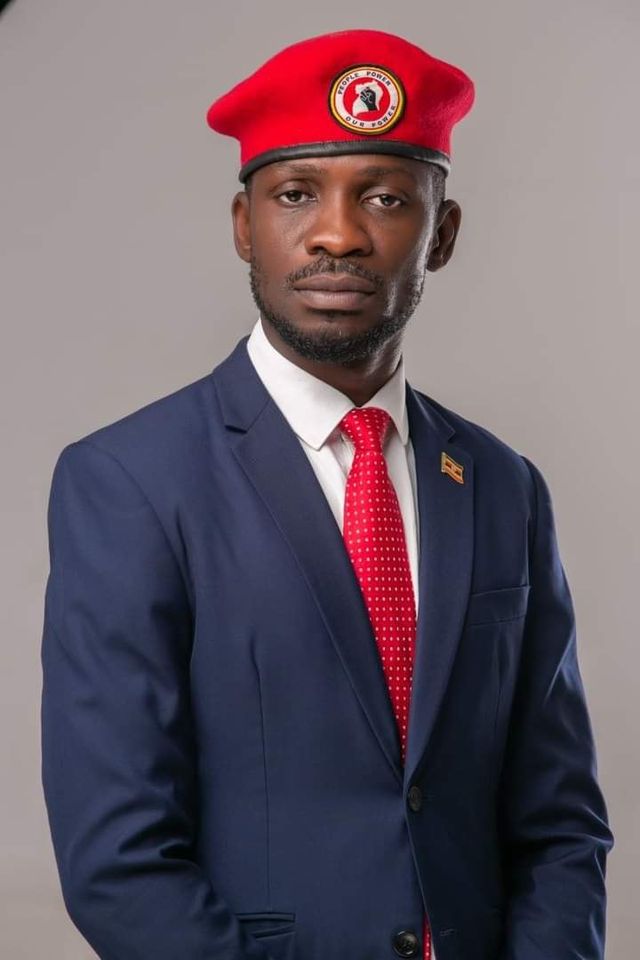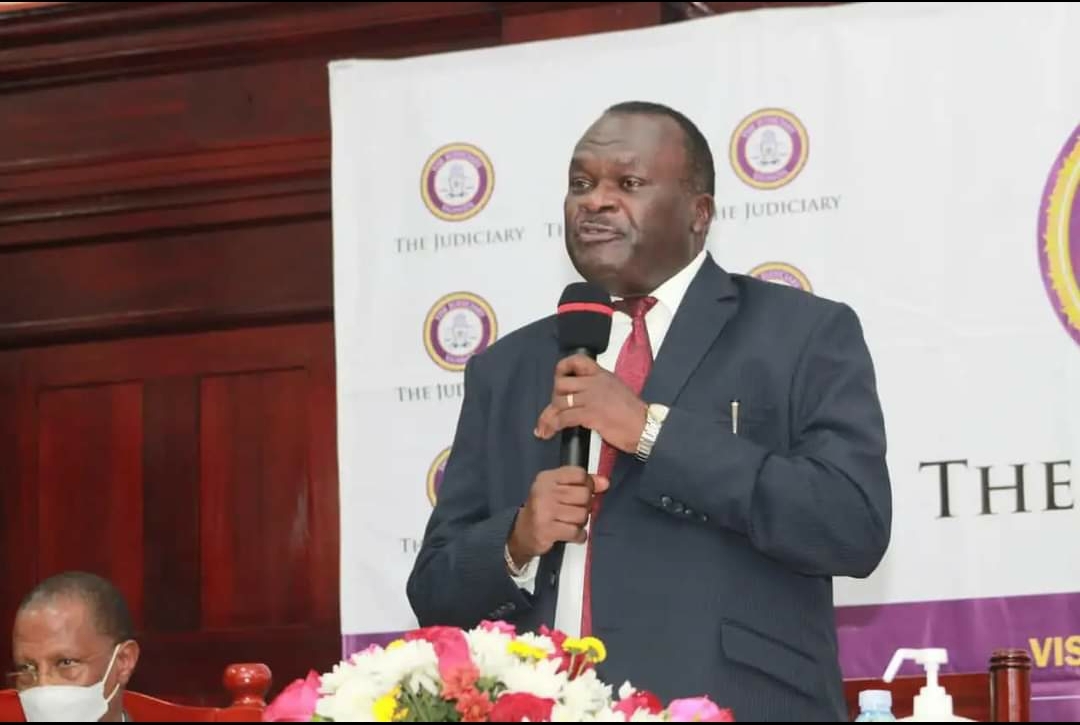

Exclusive
BIG QUESTION: Was Owiny Dollo poisoned?
The judiciary yesterday held a special session in honor of the late Supreme Court Judge, Lady Justice Stella Arach Amoko.
Amoko died on Saturday at Nakasero Hospital aged 69 years. She was left with only one year to retire from the Judiciary where she had served for 26 years. She spent 18 years at Attorney General’s Chambers.
But in usual precedent, the Chief Justice who is the official head of the Supreme Court was nowhere to be seen at the event, yet other top Judicial officers were present physically and online.
Sources told media that the Chief Justice is unwell having undergone an operation whose type they couldn’t clearly tell.
The Chief Justice Owiny-Dollo was last seen in a public event while officiating at the launch of Mukono High Court on May 11th, 2023.
Information that couldn’t be independently verified indicates that the Chief Justice is getting treatment in the United States of America.
Deputy Chief Justice, Richard Buteera presided over the session representing Chief Justice, Alfonse Owiny-Dollo who is reportedly out of the country.
Justice, Buteera told the mourners that Justice Alfonse Owiny-Dollo has been out of the country for the last three weeks for treatment.
But in the speech read by Justice Richard Buteera, Justice Owiny-Dollo said that it was painful that he hasn’t been able to see the send-off of Lady Justice Stella Arach Amoko.
The deceased being one of the most senior Judges at the Supreme Court has been sitting on the left side of the Chief Justice during the Court’s proceedings.
Owiny-Dollo said the death of Stella Arach Amoko is a big blow to the Judiciary. Her death came hardly six months after the death of Justice Rubby Opio Aweri. Justice Rubby Opio Awere also sat on the Supreme Court. The judiciary also lost Constitutional Court Judge, Kenneth Kakuru this year.
“Their untimely demise in quick succession is a tragedy of monumental proportion for the Judiciary family and the country at large. Lady Justice Stella was a most dependable person, an Administrator of the Supreme Court who promoted harmony and collegiality. She exuded and exhibited admirable judicial temperament. Her death is a big blow to the Judiciary family and to me personally,” said Chief Justice in a speech read by Justice Richard Buteera.
A special Court session was chaired by Supreme Court Judge Faith Mwondha to celebrate 44 years of Stella Arach Amoko’s distinguished service in the judicial Service.
At the ceremony, Arach’s husband now widower Ambassador Idule Amoko described her as a loving and devoted wife and that they had a lot of respect for one another because she was a faithful partner.
“My wife was ever cheerful, I had never seen her lose her temper. Stella was a person very committed to her work which she did seven days a week,” Amoko said.
According to Amoko, Stella Arach was a very incorruptible Judicial Officer and because of that character, she faced a lot of challenges.
He has appreciated the Judiciary for the support extended to the family during her illness and even in her death.
The President of Uganda Law Society, Bernard Oundo said that Arach’s professional journey from Attorney General’s chambers to the Supreme Court in 2013 reminds them as lawyers of patience while pursuing their dream.
Judicial Service Commission Chairperson, Justice Benjamin Kabiito said Stella Arach was a colleague and a friend to all of them and she strongly advocated for the Judiciary to work in harmony with the Judicial Service Commission.
The Principal Judge Dr. Flavian Zeija told mourners that the deceased was candid and objective, always guided by facts and the law in her decisions.
According to Zeija, it was during the tenure of the Late Justice Arach Amoko as the Head of the High Court Commercial Division that strategies such as mediation and arbitration were introduced at High Court Commercial Division.
Attorney General Kiryowa Kiwanuka has described the deceased as a Judge who was always humble, courteous, and soft-spoken but very firm.
“She would put her point across without raising her voice. She had a very good grasp of the law and the rules having risen in the ranks from being a State Attorney to the Supreme Court. She was always motherly and guided counsel politely,” said Kiryowa Kiwanuka.
The sorrowful session was attended by several dignitaries, including advocates, judicial officers, and government officials members of the family among others both physically and online.
Exclusive
Hajj Ashraf Semwogerere pens down a letter to H.E.Bobi Wine and Mathias Mpuuga
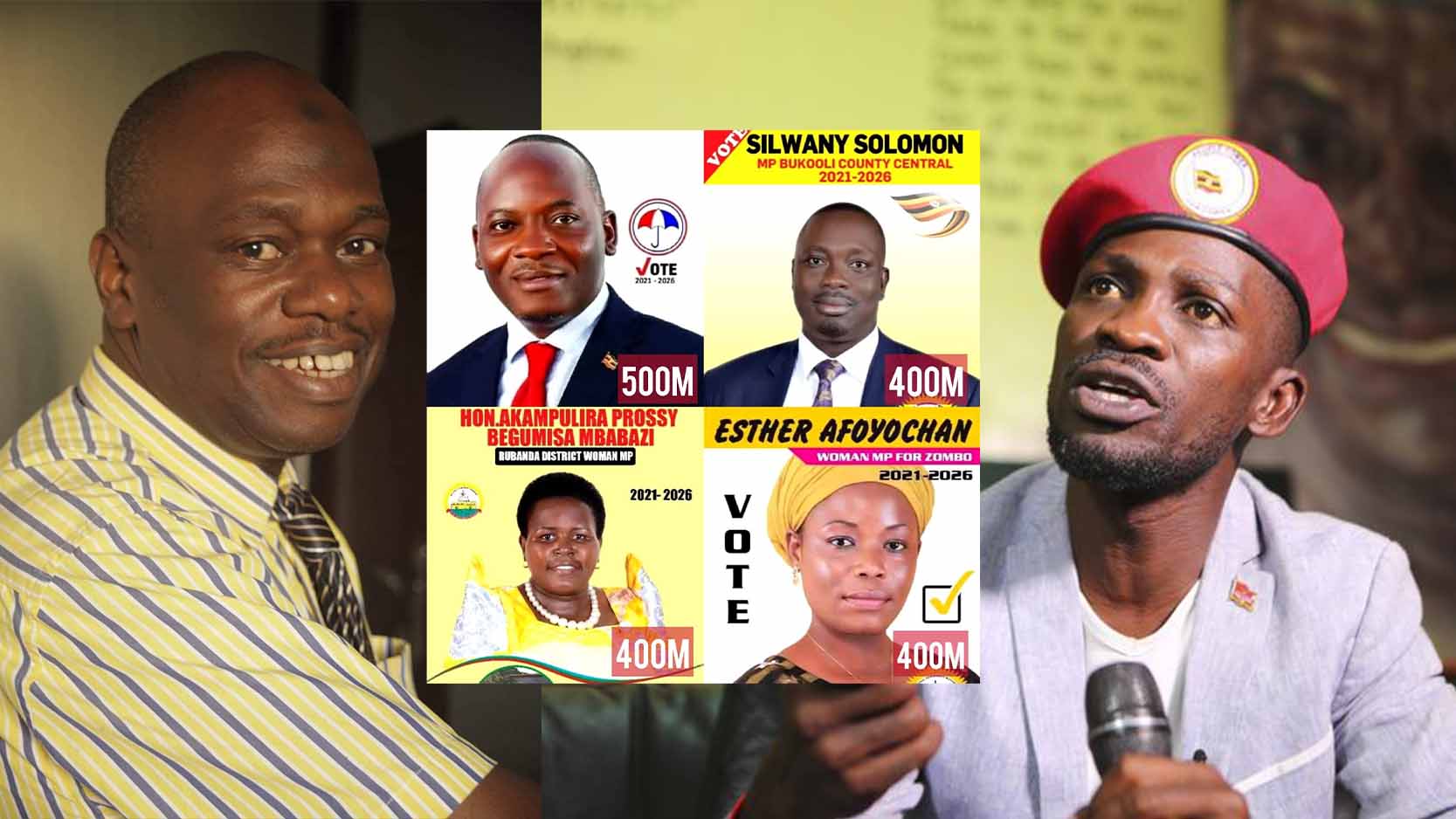
Asalaam alaikum.
A LETTER TO PRINCIPAL ROBERT KYAGULANYI Bobi Wine AND HONORABLE MATHIAS MPUUGA.
The Cuban revolution.
General Arnaldo Tomás Ochoa Sánchez was chosen by Defense Minister Raúl Castro to become the head of Cuba’s Western Army. Since this branch of the military protects Cuba’s capital city, Havana, and its top leaders and installations, the position would have made him the third most powerful military figure on the island, after Commander in Chief Fidel Castro and General Raúl Castro (today Secretary general of Cuban Communist party.).
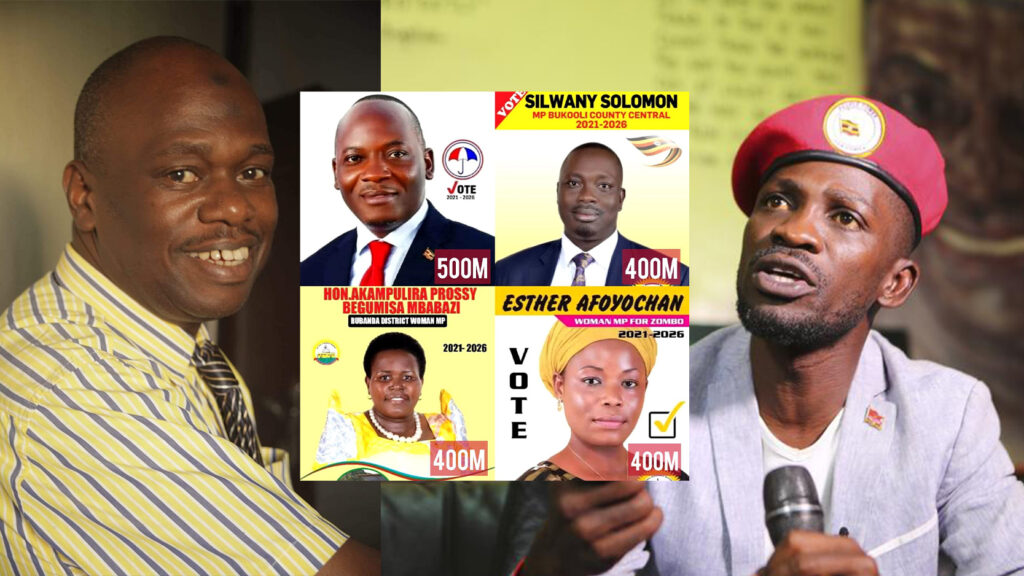
What was expected to be a routine background check prior to the announcement of his appointment began to unravel, however, when at appointment, the government accused Ochoa of corruption, which included, but was not limited to, the sale of diamonds and ivory from Angola and the misappropriation of weapons in Nicaragua. As the investigation continued, links were found to other military and Ministry of the Interior officials who were engaged in even more serious crimes: taking pay-offs from South American drug-traffickers, including Pablo Escobar and General Manuel Noriega in exchange for letting them use Cuban territorial waters for drug drops and pick-ups.
General Raúl Castro, who was very close to Ochoa personally, later said he pleaded with Ochoa on a number of occasions to come clean and reveal everything so they could move forward. When Ochoa refused to cooperate, on June 12, the Ministry of the Revolutionary Armed Forces announced his arrest and investigation for serious acts of corruption, dishonest use of economic resources, and abetting drug trafficking.
When Ochoa sat before Fidel Castro in the President’s office, he humbly accepted to have betrayed the revolution and asked the commander in chief to do what was necessary to keep the revolution strong. Castro signed his death warrant.
At dawn on July 13, 1989, Ochoa was executed by a firing squad along with three senior officers of the Ministry of the Armed Forces and Ministry of the Interior , after a military court convicted them of drug smuggling.
Meanwhile, the Cuban revolution grew stronger despite the fact that their major rival United States was a superpower and a stone throw away from their island.
THE NRM/NRA REVOLUTION;
During the NRM/NRA bush war, several Kadogos mostly from Buganda were executed for just stealing chicken or Cassava of Wanainch. This was the bush war code of conduct. It acted as a deterrent to other rebel soldiers to instill discipline. Those who were around in 1986 when NRA stormed Kampala will tell you how well disciplined these soldiers were.
Today, there is a crisis in the NUP revolution. Where a high ranking Soldier like Ochoa of Cuba has betrayed the revolution. In the NRA bush language, the soldier has stolen from Wanainch.
For the Revolution to stand its time, I beg Honorable Mathias to act like Owekitiibwa and tell the principal to do what is necessary exactly like what Ochoa did. And to Principal Kyagulanyi, please do like Federal Castro. Please sign that warrant. The revolution is just beginning to keep its code of conduct. nobody should be above it. A revolution without discipline turns into banditry. What Dr Apollo Militon Obote had referred to NRA.
DP and FDC have a lot for reference.
Hajj Ashraf Semwogerere.
Exclusive
Justin: Rt. Hon. Mathias Mpuuga asked to Resign After Admitting Taking Irregular Service Award 500 Million
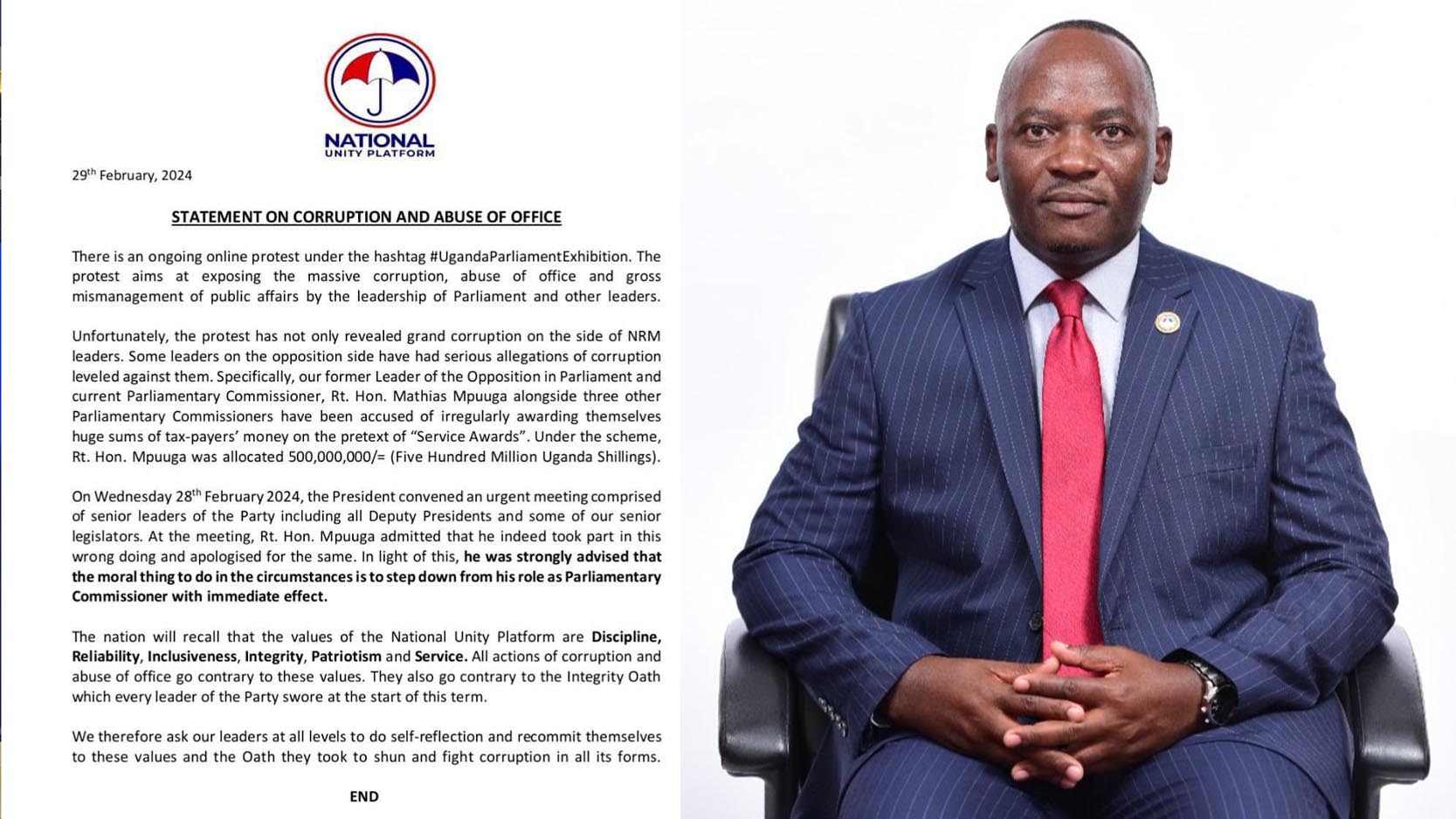
Former Leader of Opposition in Parliament Mathias Mpuuga asked to Resign by the NUP party to resign from the position of Commissioner of Parliament after admitting to having taken part in an irregular service award amounting to UGX 500 million.
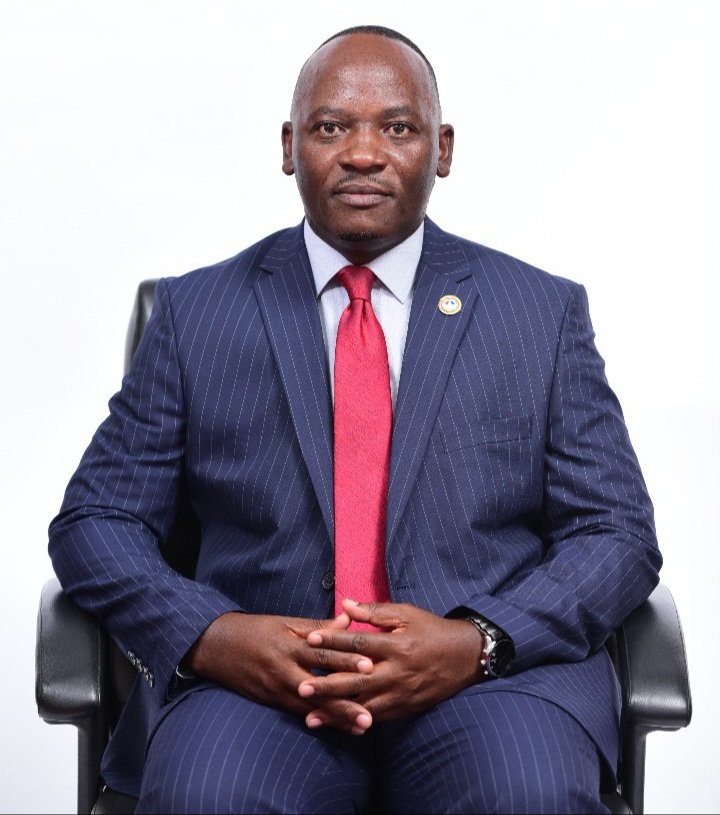
There is an ongoing online protest under the hashtag #UgandaParliamentExhibition. The protest aims at exposing the massive corruption, abuse of office and gross mismanagement of public affairs by the leadership of Parliament and other leaders.
Unfortunately, the protest has not only revealed grand corruption on the side of NRM leaders. Some leaders on the opposition side have had serious allegations of corruption leveled against them. Specifically, our former Leader of the Opposition in Parliament and current Parliamentary Commissioner, Rt. Hon. Mathias Mpuuga alongside three other Parliamentary Commissioners have been accused of irregularly awarding themselves huge sums of tax-payers’ money on the pretext of “Service Awards”. Under the scheme, Rt. Hon. Mpuuga was allocated 500,000,000/= (Five Hundred Million Uganda Shillings).
On Wednesday 28th February 2024, the President convened an urgent meeting comprised of senior leaders of the Party including all Deputy Presidents and some of our senior legislators. At the meeting, Rt. Hon. Mpuuga admitted that he indeed took part in this wrong doing and apologised for the same. In light of this, he was strongly advised that the moral thing to do in the circumstances is to step down from his role as Parliamentary Commissioner with immediate effect.
The nation will recall that the values of the National Unity Platform are Discipline, Reliability, Inclusiveness, Integrity, Patriotism and Service. All actions of corruption and abuse of office go contrary to these values. They also go contrary to the Integrity Oath which every leader of the Party swore at the start of this term.
We therefore ask our leaders at all levels to do self-reflection and recommit themselves to these values and the Oath they took to shun and fight corruption in all its forms.
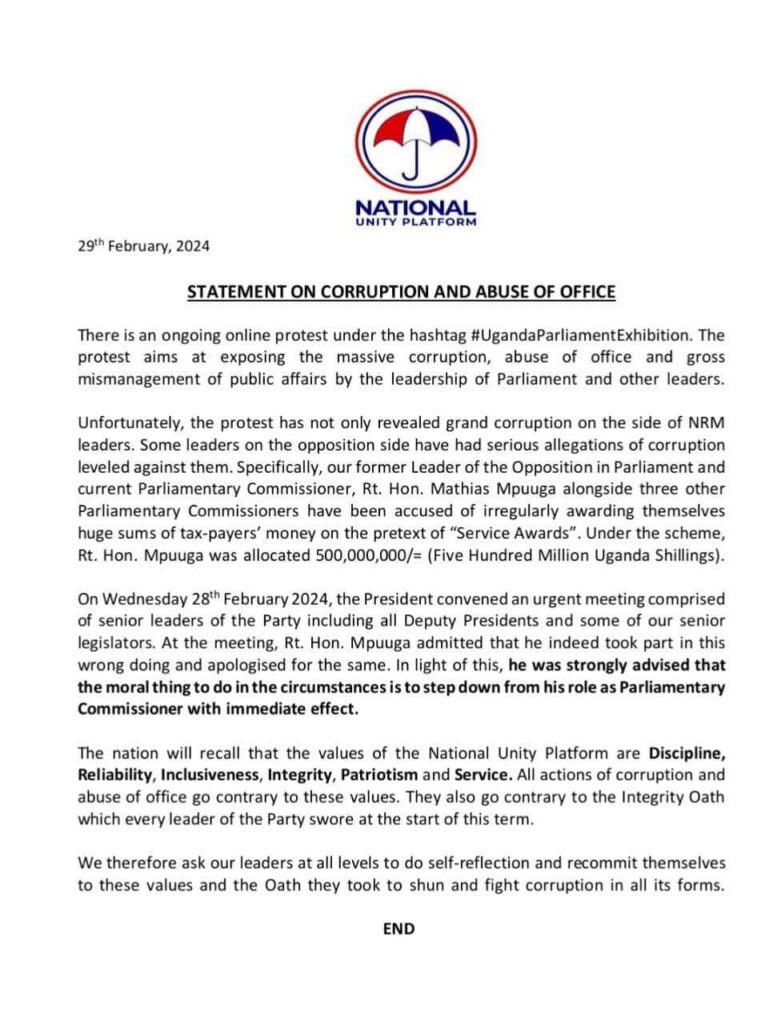
Exclusive
What it means for Bobi Wine to meet Global influencers
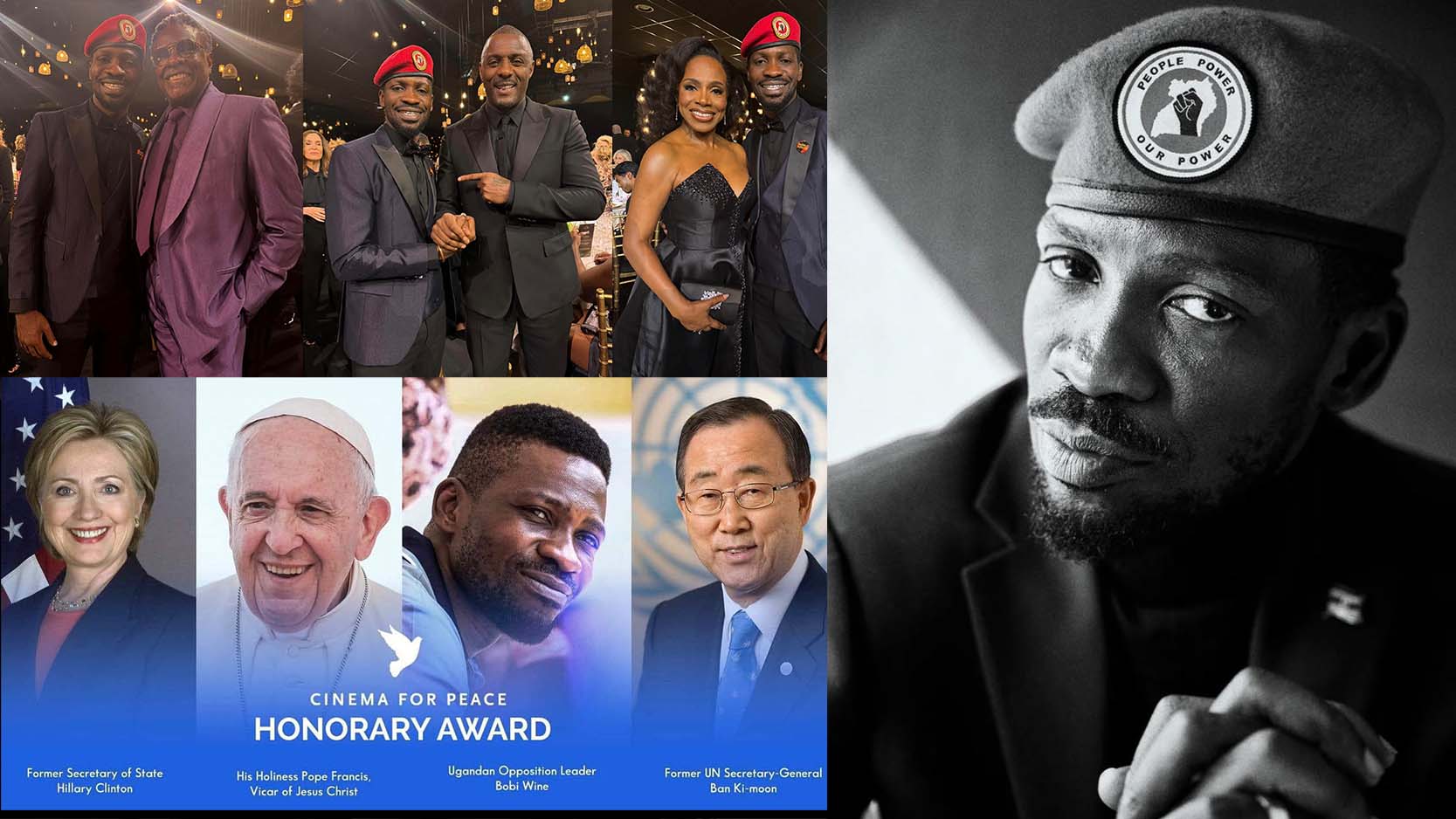
An in-depth analysis of What it means for Bobi Wine to meet Global influencers
Bobi Wine’s Meetings with Global Influencers:
Bobi Wine, the Ugandan people’s President, has recently embarked on a series of high-profile meetings with globally renowned figures spanning various domains. From policy makers and activists to iconic filmmakers and acclaimed actors, his interactions transcend mere celebrity photo opportunities and represent strategic strides towards amplifying his advocacy and the broader movement for social change in Uganda. These engagements come in the wake of the critically acclaimed documentary, “Bobi Wine The People’s President,” which has garnered significant acclaim and recognition on the global stage.
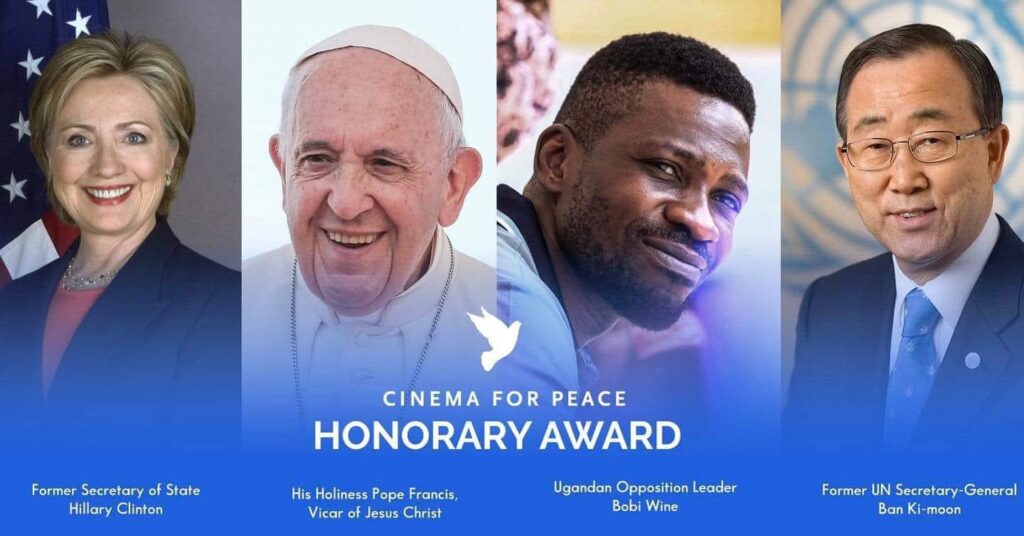
The gripping documentary which unmasks and exposes Museveni’s repressive tactics to cling onto power also chronicles the remarkable journey of Bobi Wine, a pop star-turned-politician, as he strives to dismantle Uganda’s brutal dictatorship under dictator Museveni’s oppressive rule. The film’s profound impact and resonance have propelled it to numerous accolades globally, including an Oscar nomination and the prestigious Best Political Film of the Year award at the Cinema for Peace Awards in Berlin, Germany. This recognition has undoubtedly elevated Bobi Wine’s profile, opening doors to a multitude of platforms and enabling him to meet and engage with influential figures from diverse spheres.
At the forefront of these engagements is Bobi Wine’s pursuit of visibility and outreach. By aligning himself with influential personalities, he taps into their extensive reach and platform, exposing his cause to new audiences that may have previously been oblivious to the challenges plaguing his nation under Dictator Museveni. Celebrities and renowned figures possess the power to captivate the masses, and by leveraging these connections, Bobi Wine can rally support from unexpected quarters, fostering a global consciousness about the dire need for reform in Uganda.
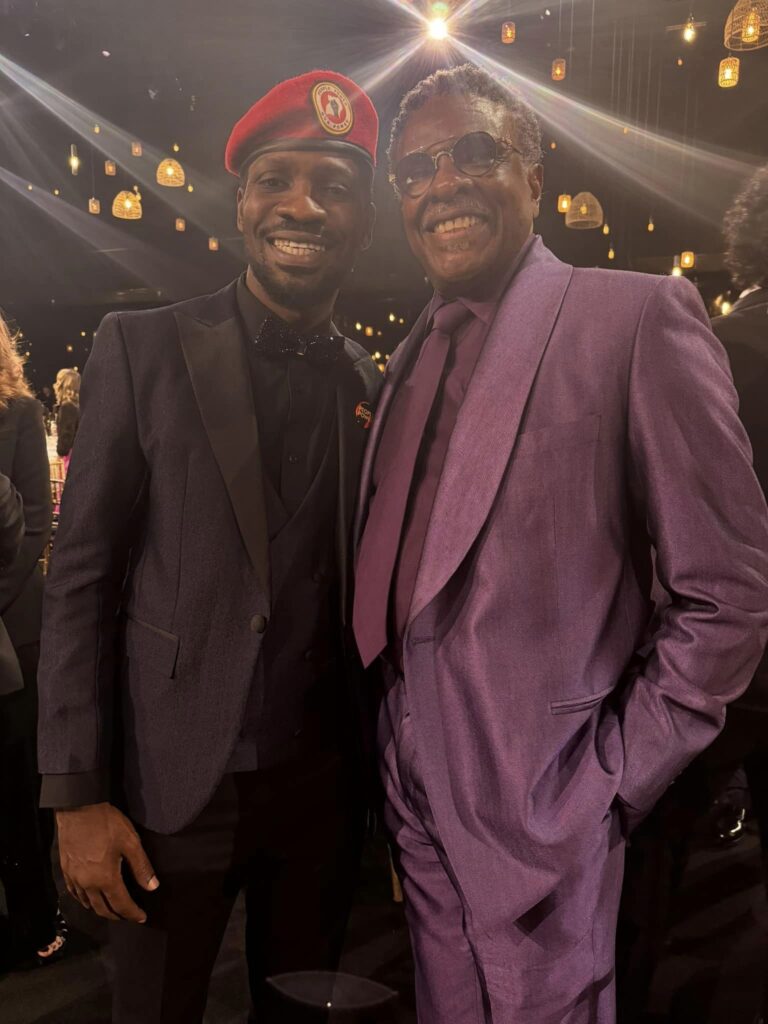
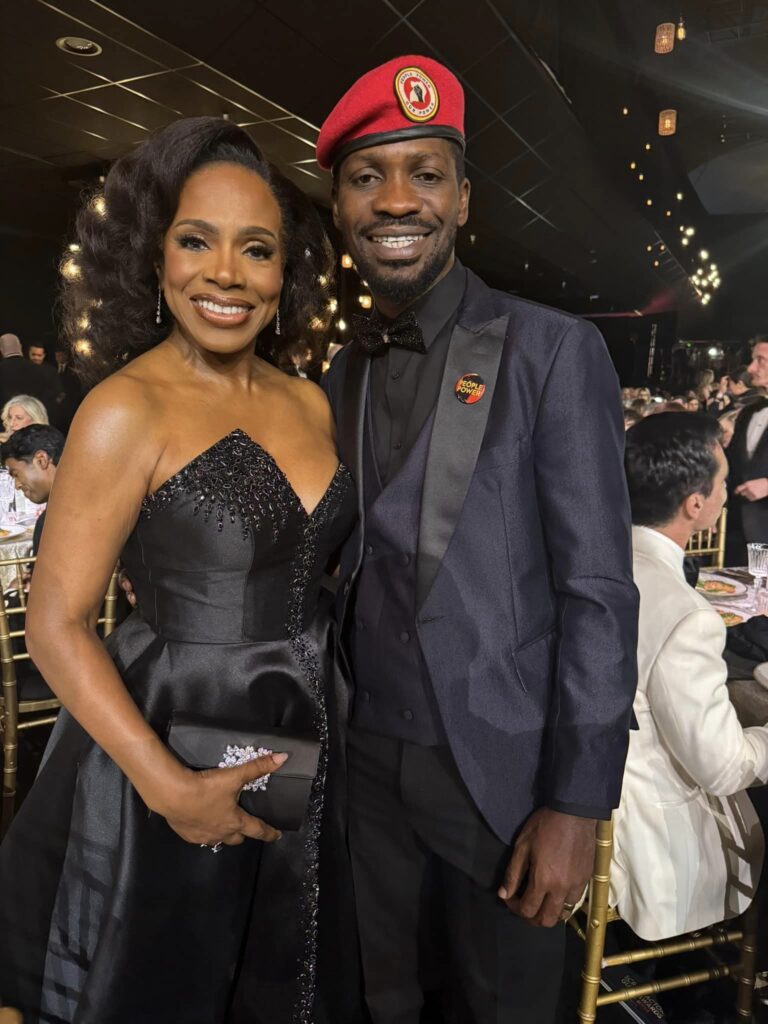
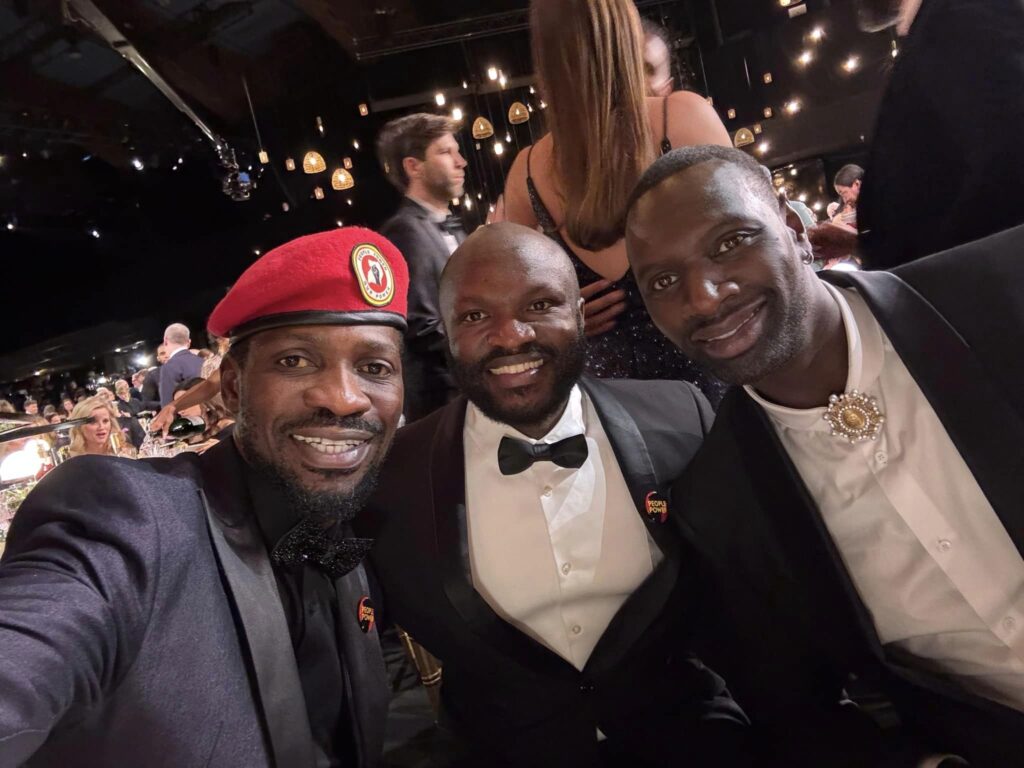
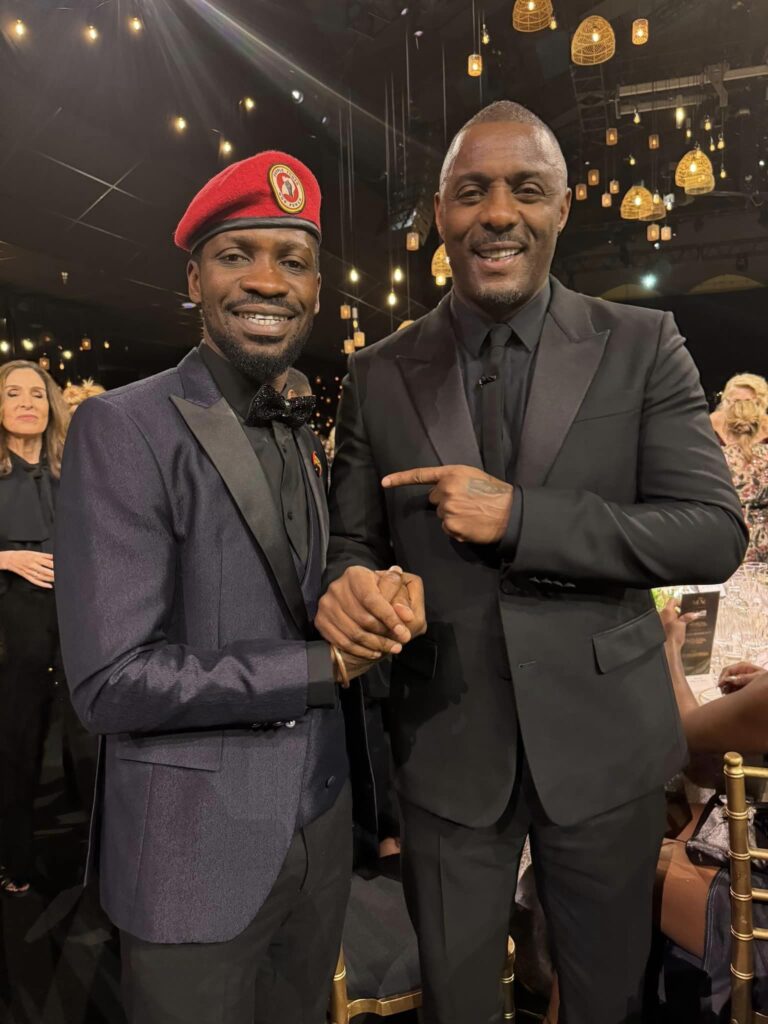
Moreover, the documentary’s success has facilitated Bobi Wine’s ability to forge vital relationships with key decision makers and fellow activists. With the documentary serving as a catalyst, he can engage in dialogues with policymakers and government officials, advocating for change at the highest echelons of power and pushing for legislative and administrative reforms that strike at the root causes of social injustices. Simultaneously, by collaborating with fellow activists who have been inspired by his story, Bobi Wine can strengthen the solidarity within the movement, sharing strategies, experiences, and amplifying their collective voice for change.
The engagements with iconic filmmakers and actors, many of whom have likely been exposed to Bobi Wine’s journey through the documentary, present a unique opportunity for him to leverage the power of storytelling and artistic expression. Through joint initiatives, public statements, and collaborative projects, these creative minds can shed light on the harsh realities of life in Uganda under the Museveni oppressive regime, capturing the hearts and minds of audiences worldwide. Their ability to craft narratives and evoke emotions can serve as a powerful catalyst for raising awareness and igniting a sense of urgency for action.
Significantly, the documentary’s success has also opened doors to invaluable resources and expertise that can bolster Bobi Wine’s activism. From logistical assistance to strategic guidance and networking opportunities, the connections he forges with influential figures who have been moved by his story can provide a range of opportunities that can sustain and propel the momentum of the people power movement.
What it means for Bobi Wine to meet Global influencers
Additionally, Bobi Wine’s engagement with global influencers extends beyond the confines of individual meetings. By cultivating long-term relationships and collaborations, he can tap into their respective spheres of influence, amplifying his message through joint initiatives, public appearances, and social media campaigns. This synergy can create a ripple effect, inspiring others who have been captivated by the documentary to join the cause and lending credibility to the movement’s objectives.
In the broader context, the success of “Bobi Wine: The People’s President” and the subsequent engagements with global figures represent a recognition of the interconnectedness of struggles for justice and human rights across borders. By aligning himself with like-minded individuals and organizations, many of whom have been moved by his story, Bobi Wine can foster a sense of global solidarity, transcending national boundaries and inspiring others to stand in solidarity with the plight of the Ugandan people.
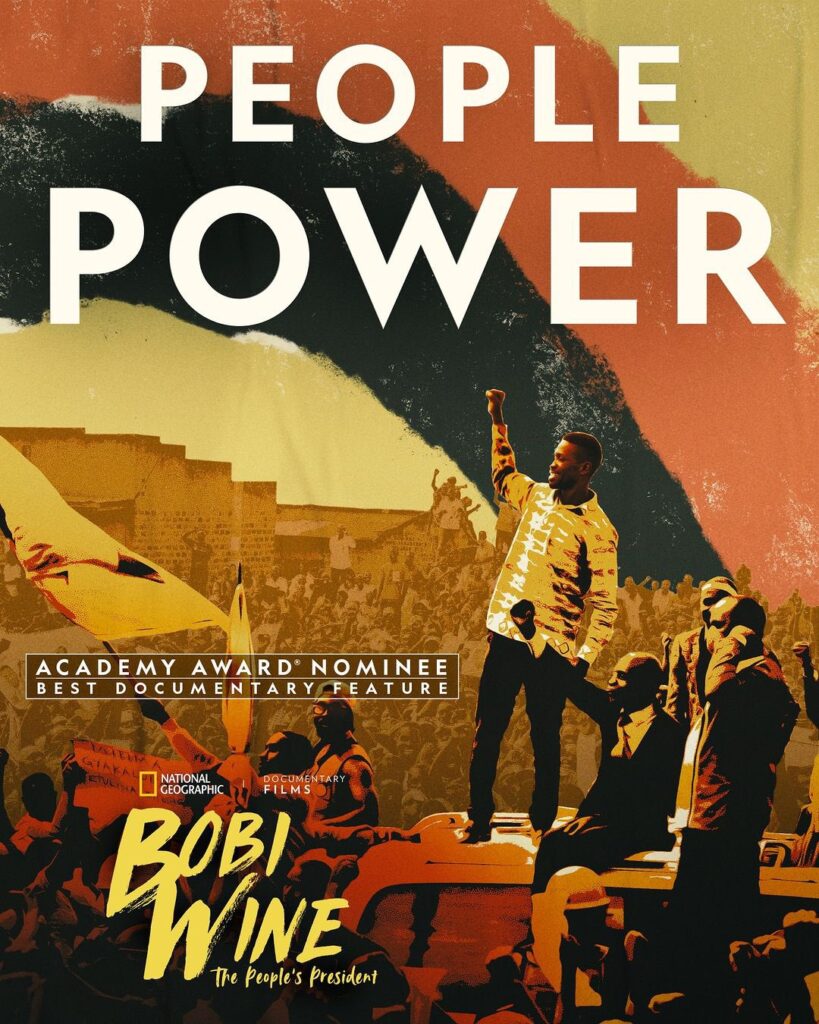
Bobi Wine’s meetings with these global icons are not mere celebrity endorsements but calculated moves to expand his fight for social change in Uganda. By leveraging the influence, resources, and expertise of these individuals who have been touched by his remarkable journey, he can amplify his message, build solidarity, advocate for meaningful reforms, and inspire a global movement that demands justice and upholds the fundamental rights of all people.
What you need to know
- – Yoweri Museveni has been president of Uganda since seizing power in 1986 after a five-year guerrilla war. He has ruled the country for over 38 years through a combination of political repression, constitutional amendments to extend term limits, and suppressing opposition.
- – Uganda is essentially an authoritarian state with Museveni and his political party, the National Resistance Movement, dominating all branches of government and major institutions. Elections are marred by intimidation, violence, and lack of a level playing field.
- – Political opposition, dissent, and criticism of the government are routinely suppressed through arrests, harassment, torture, and extrajudicial killings of opposition figures, activists, and journalists. Freedom of expression, assembly, and the press are severely restricted.
- -The government has cracked down brutally on protests and the political opposition, including conducting a violent crackdown on supporters of Bobi Wine during the 2021 presidential election campaign in which over 150 people were killed.
- – Human rights defenders, civil society organizations, NGOs, and activists face constant harassment, detentions, office raids and shutdowns by security forces under accusations of destabilizing the regime.
- – Entrenched corruption, nepotism, and abuse of public resources are rampant within the government, security services, and the public sector, enriching Museveni’s inner circle and patronage networks.
- – Uganda under Museveni, poverty levels remain high, and wealth is concentrated among the ruling elite. Health, education, and social services are poorly funded and inadequate for most citizens.
- – Museveni wields control over the security forces through leaders loyal to him. The military and police are implicated in human rights abuses, extrajudicial killings, torture, and cracking down violently on dissent.
In essence, Museveni rules as an authoritarian leader, suppressing opposition, dissent, and civil liberties to maintain his grip on power, while also presiding over widespread corruption, economic inequality, and human rights abuses by security forces. This has fueled calls for democratic reforms by the opposition.
Writer
JBMuwonge – Social Activist
www.jbmuwonge.com
-
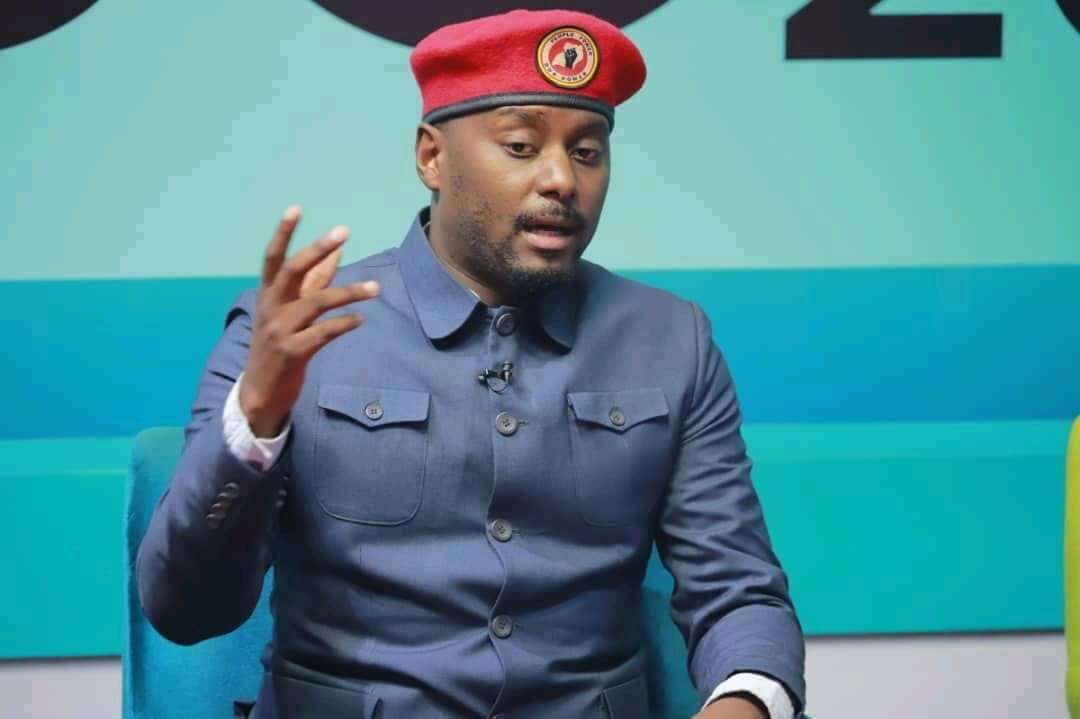
 Uganda2 years ago
Uganda2 years agoThis is why dictator M7 throws “Small victories” to the opposition
-
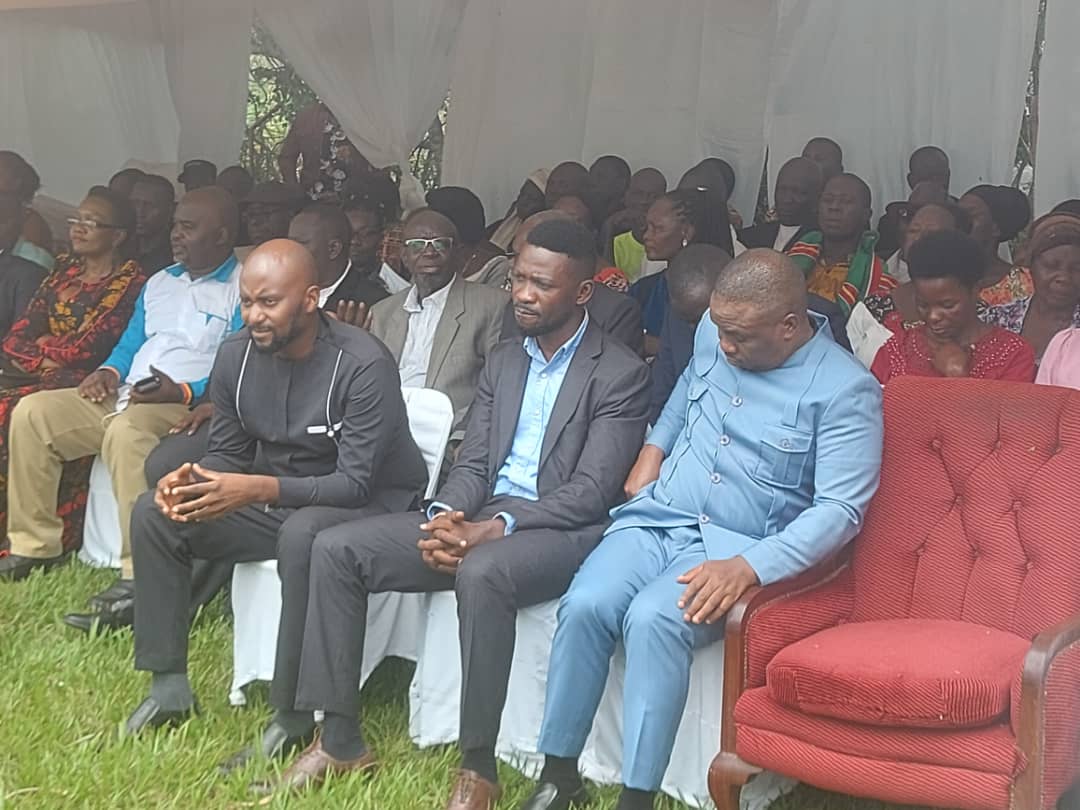
 News1 year ago
News1 year agoPresident Bobi attends burial of wife to ex LOP Oguttu
-
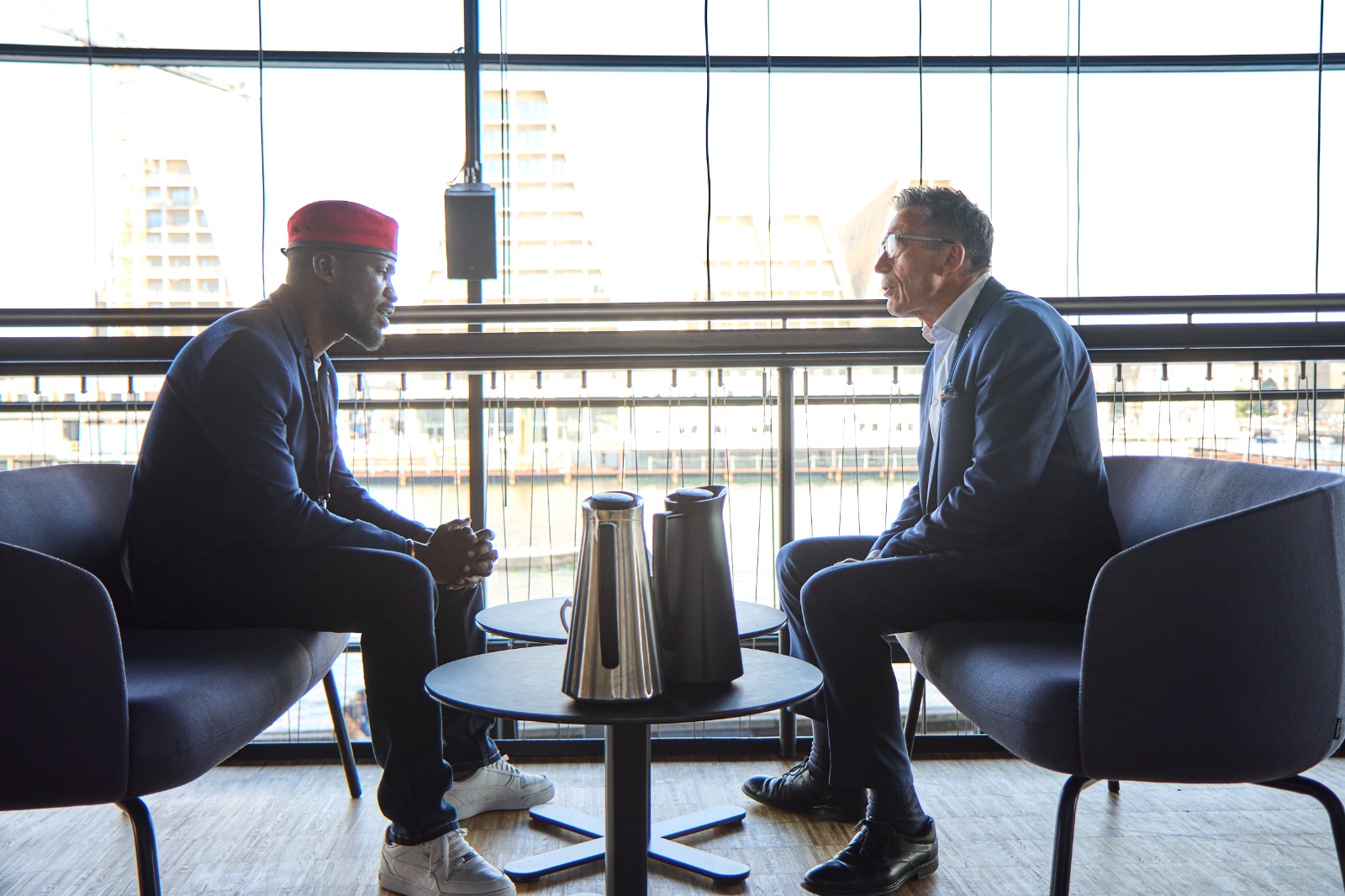
 News1 year ago
News1 year agoBobi meets ex NATO boss, discuss key issues
-

 NUP/People Power Archives1 year ago
NUP/People Power Archives1 year agoNUP’s Olivia Lutaaya still detained since 2021
-
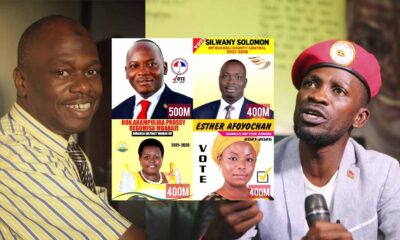
 Exclusive5 months ago
Exclusive5 months agoHajj Ashraf Semwogerere pens down a letter to H.E.Bobi Wine and Mathias Mpuuga
-
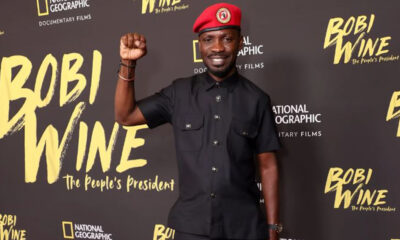
 Exclusive5 months ago
Exclusive5 months agoBobi Wine The People’s President Full Documentary





